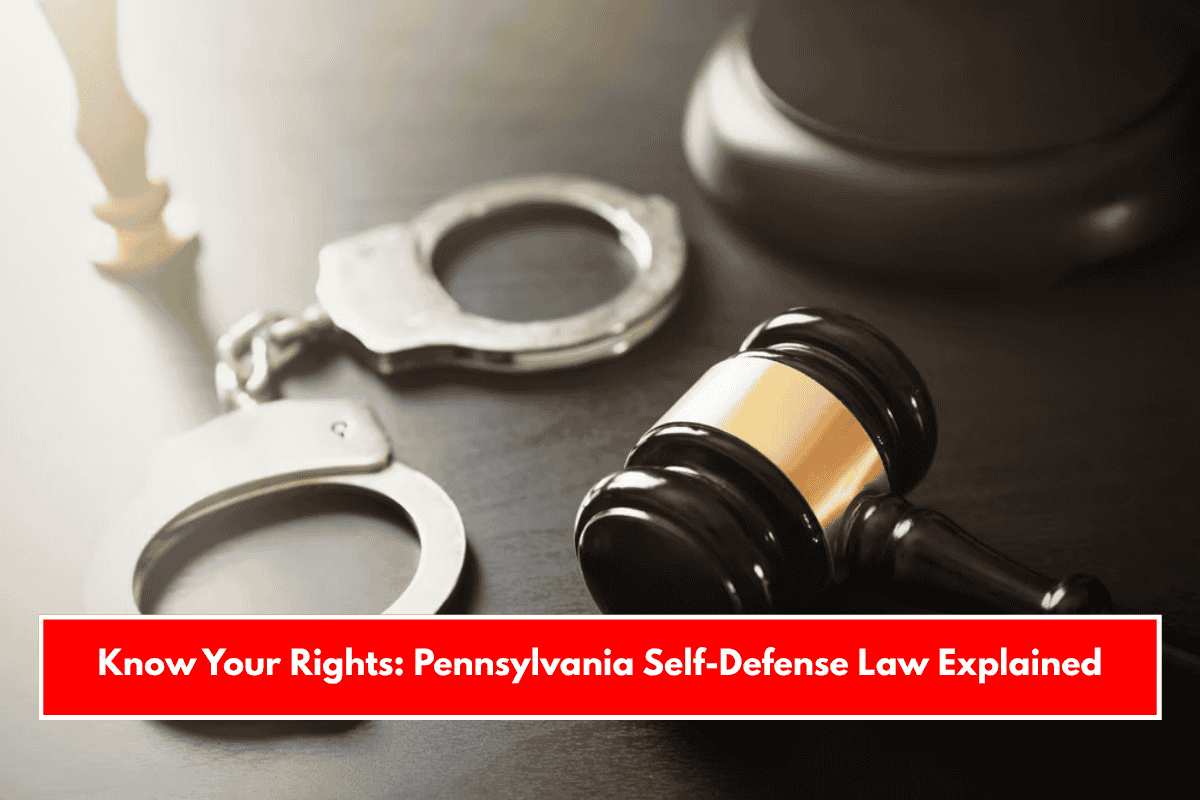Understanding self-defense laws in Pennsylvania is crucial for anyone who may find themselves in a situation where force is necessary to protect themselves or others. Pennsylvania law provides specific guidelines for when and how force—including deadly force—can be legally used, balancing the right to self-protection with the need to prevent excessive or unjustified violence.
Key Principles of Self-Defense in Pennsylvania
- Reasonable Belief and Immediacy
You may use force if you reasonably believe it is immediately necessary to protect yourself from another person’s unlawful use of force. This belief must be objectively reasonable under the circumstances, and the threat must be immediate—not a vague or future threat. - Proportionality
The force used in self-defense must be proportional to the threat faced. For instance, responding to a fistfight with a deadly weapon is generally not justified. Deadly force is only permissible if you believe you are in imminent danger of death, serious bodily injury, sexual assault, or kidnapping. - No Initial Aggressor
If you initiated or provoked the confrontation, you generally cannot claim self-defense unless you clearly withdrew from the encounter and communicated your intent to do so.
Castle Doctrine and Stand Your Ground
- Castle Doctrine
Pennsylvania’s Castle Doctrine allows you to use force—including deadly force—without a duty to retreat if someone unlawfully enters or attempts to enter your home, occupied vehicle, or workplace. The law presumes your fear of imminent harm is reasonable in these scenarios. - Stand Your Ground
Outside your home or vehicle, Pennsylvania’s Stand Your Ground law allows you to use deadly force without retreating if:- You are in a place where you are legally allowed to be,You are not engaged in criminal activity,You face an immediate threat of serious harm or death,The aggressor is using or displaying a deadly weapon.
Legal Limitations and Exceptions
- Unlawful Force Only
Self-defense is only justified against unlawful force. You cannot claim self-defense for resisting a lawful arrest or for retaliating against lawful actions7. - Prohibited Situations
Self-defense does not apply if:- You are resisting a known law enforcement officer making an arrest, even if the arrest is unlawful,
- You provoked the use of force with intent to cause harm,
- The threat is not immediate or is based on a past incident.
- Defending Others
You may use force to defend another person if you reasonably believe that person would be justified in using force to protect themselves, and your intervention is necessary.
Potential for Criminal Charges
Even if you believe you acted in self-defense, you may still be arrested or charged if law enforcement or prosecutors believe your actions were excessive or unjustified. Common charges include assault, reckless endangerment, or even homicide in deadly force cases. The burden is on the prosecution to prove you did not act in self-defense, but you must be able to demonstrate that your actions met the legal requirements.
Recent and Proposed Changes
Pennsylvania’s self-defense laws have evolved, with recent efforts to expand or modify the Stand Your Ground provisions. Some proposals seek to broaden the circumstances under which deadly force is justified, such as when there is a disparity in size or numbers, but as of now, the law still requires a reasonable belief that the aggressor possessed a deadly weapon.
What To Do After a Self-Defense Incident
If you are involved in a self-defense situation:
- Contact law enforcement and cooperate, but avoid making detailed statements without legal counsel.
- Consult an experienced criminal defense attorney immediately to protect your rights and build your defense.
Key Elements of Pennsylvania Self-Defense Law
| Principle | Requirement |
|---|---|
| Reasonable Belief | Must believe force is immediately necessary |
| Proportionality | Force used must match the threat |
| Castle Doctrine | No duty to retreat in home, vehicle, or workplace |
| Stand Your Ground | No duty to retreat if not engaged in crime, in legal place, facing deadly weapon |
| Initial Aggressor | Cannot claim self-defense if you started the confrontation (unless you withdrew) |
| Defending Others | Permitted if the other person would be justified in using force |
Pennsylvania’s self-defense laws are designed to protect individuals who act reasonably to defend themselves or others, but they also impose strict requirements to prevent misuse. Understanding these laws can help you make informed decisions in high-stress situations and protect your rights if you ever need to defend yourself.
Sources
- https://www.roygallowaylaw.com/what-are-self-defense-laws-in-pennsylvania/
- https://www.philadelphiacriminalattorney.com/blog/can-you-be-charged-with-a-crime-after-a-self-defense-incident-in-pa/
- https://www.pittsburghcriminalattorney.com/when-does-self-defense-justify-a-violent-crime-in-pennsylvania/
- https://www.ceasefirepa.org/our-work/ending-stand-your-ground/
- https://www.mtvlaw.com/blog/what-constitutes-self-defense-in-pennsylvania/














